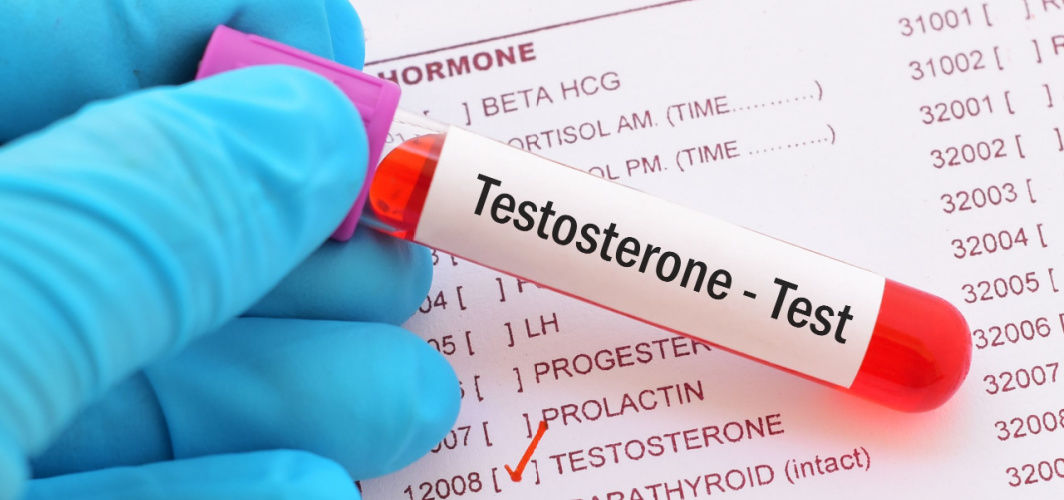General Health
Falling Short Of Breath? This Test Can Check Your Risk For Heart Failure
6 min read
By Apollo 24|7, Published on - 29 May 2025
Share this article
0
0 like
.jpg?tr=q-80)
If you've ever found yourself struggling to catch your breath during routine activities or felt unusually fatigued after minimal exertion, you might have dismissed it as simply being out of shape or overworked. However, these could be early signs of heart failure, a serious but manageable condition that affects millions of people worldwide.
While many are familiar with the term "heart failure," few are aware of the simple diagnostic tool that can help detect this condition early: the BNP test (B-type Natriuretic Peptide test). This test could be key to understanding whether your heart is at risk, especially if you're experiencing symptoms like shortness of breath or swelling in your legs. This article will help you know what the BNP test is, why it matters, how it works, and why it might be the test you need if you're showing signs of heart failure.
What Is the BNP Test?
The BNP test is a blood test used to measure the levels of B-type natriuretic peptide (BNP), a hormone released by your heart. BNP is primarily produced in the ventricles of your heart in response to stress, such as when the heart is working harder than usual to pump blood throughout your body.
Heart failure is one of the leading causes of increased BNP levels. When your heart's pumping efficiency is reduced, the heart releases BNP to try to manage the increased pressure. Elevated levels of BNP in the blood indicate that the heart is under stress, which can be a sign of heart failure.
Why Might You Need a BNP Test?
A BNP blood test is often recommended when a healthcare provider suspects that your symptoms may be related to heart failure. This test plays a key role in identifying heart-related issues early, which is critical for timely treatment and better long-term outcomes.
You may be asked to take a BNP test if you’re experiencing any of the following symptoms:
- Shortness of breath (dyspnea), even during light activity or when lying down
- Persistent fatigue or unexplained weakness
- Sudden weight gain that isn’t linked to changes in your diet or exercise routine
- Difficulty concentrating or staying mentally alert
- Rapid or irregular heartbeat
- Frequent coughing, sometimes producing white or pink-tinged mucus
- Nausea or loss of appetite
How is BNP test performed?
The BNP test is a simple blood test used to measure levels of B-type Natriuretic Peptide (BNP) or NT-proBNP, which helps assess heart function. Here’s how it’s performed:
- Preparation: No fasting is required, and you can eat and drink normally before the test. However, inform your doctor about any medications you're taking, as some may affect BNP levels.
- Blood Sample Collection: A healthcare professional will draw blood from a vein in your arm using a small needle. This process takes just a few minutes.
- Laboratory Analysis: The blood sample is sent to a lab, where BNP or NT-proBNP levels are measured.
- Results & Interpretation: Results are typically available within a few hours to a day. Your doctor will review the BNP levels alongside other tests to determine if heart failure or another condition is present.
Understanding BNP Blood Test Results
In general, a BNP level below 100 picograms per millilitre (pg/mL) is considered normal, regardless of age. This level makes heart failure unlikely, especially if you don’t have symptoms. However, BNP levels tend to increase naturally with age, and other health factors, such as kidney disease, lung conditions, and even recent illness, can also raise BNP levels.
Doctors also sometimes use a related version of the test called NT-proBNP (N-terminal pro B-type natriuretic peptide), which measures a different fragment of the same hormone. Although both tests assess heart function, NT-proBNP tends to be more stable in the blood and can stay elevated for a longer duration. The chart below reflects data specifically related to the NT-proBNP version of the BNP test:While BNP levels above 100 pg/mL might raise concerns, the higher they go, the greater the likelihood of heart failure or other heart-related issues. Doctors interpret BNP results alongside symptoms and additional tests to ensure an accurate diagnosis.
Why Is the BNP Test Important for Heart Failure Diagnosis?
Heart failure often develops gradually, and its early symptoms can be subtle or mistaken for other less severe conditions. By identifying high BNP levels, doctors can diagnose heart failure earlier and begin treatment before the condition progresses.
Some of the key benefits of using the BNP test include:
- Early detection: Detecting heart failure early can help prevent further complications, including hospitalisation, organ damage, and reduced quality of life.
Accurate diagnosis: BNP levels help doctors differentiate between heart failure and other conditions, such as asthma or pneumonia, that might present with similar symptoms. - Guiding treatment: Once heart failure is diagnosed, the BNP test helps guide treatment decisions, including whether a patient needs diuretics, ACE inhibitors, beta-blockers, or other medications.
- Monitoring disease progression: BNP levels can be monitored over time to see if treatment is working, or if additional intervention is needed.
Have more questions?
How Is Heart Failure Managed After a High BNP Result?
A high BNP result signals excessive strain on the heart, often due to fluid buildup or inefficient pumping. Managing heart failure following elevated BNP levels involves several steps:
- Confirming Diagnosis: Additional tests such as echocardiograms, ECGs, and kidney function assessments help determine the severity of heart failure.
- Lifestyle Adjustments: Reducing sodium intake, managing fluids, engaging in supervised exercise, and quitting smoking or alcohol can significantly ease heart strain.
- Medications: Doctors may prescribe a combination of medications based on your specific condition. These may include diuretics to reduce fluid buildup, ACE inhibitors (angiotensin-converting enzyme inhibitors) or ARBs (angiotensin II receptor blockers) to improve how the heart pumps blood, and beta-blockers to slow the heart rate and reduce its workload. In some cases, medications such as SGLT2 inhibitors (sodium-glucose co-transporter 2 inhibitors) may also be recommended for their additional cardiovascular benefits.
- Advanced Treatments: Severe cases may require implantable devices, cardiac resynchronisation therapy (CRT) for better heart contractions, or, in end-stage conditions, a heart transplant.
- Regular Monitoring: Ongoing checkups help track BNP levels and adjust treatment strategies to ensure better heart health and symptom management.
Conclusion
Heart failure is a progressive condition that benefits from early diagnosis and management. The BNP test plays an essential role in identifying heart strain before symptoms worsen. If you experience unexplained breathlessness, consulting your doctor and undergoing a BNP test can provide clarity and allow for timely intervention.
General Health
Leave Comment
Recommended for you
.jpg?tr=q-80)
General Health
MPV Blood Test: What to Know About Your Platelet Volume and Overall Health
Learn about the MPV blood test, what your platelet volume means, and how it relates to your overall health. Discover normal ranges, causes of high or low MPV, and when to consult a doctor.

General Health
Blood Cancer: Types, Causes, Symptoms, Diagnosis, Treatment
Blood cancer like leukemia & lymphoma leads to an increase in abnormal blood cells, which hinder your body from performing its regular function and can be life-threatening. There is no cure for cancer but there are several ways to treat it.

General Health
How To Check Testosterone Levels?
Monitoring testosterone levels is essential for maintaining optimal health. Understanding the significance of testosterone, the testing methods available, recognising signs of low levels, and knowing when to get tested is key to addressing any hormonal imbalances effectively.
Subscribe
Sign up for our free Health Library Daily Newsletter
Get doctor-approved health tips, news, and more.
Visual Stories

The Best Exercises for Controlling Blood Sugar Levels
Tap to continue exploring
Recommended for you
.jpg?tr=q-80)
General Health
MPV Blood Test: What to Know About Your Platelet Volume and Overall Health
Learn about the MPV blood test, what your platelet volume means, and how it relates to your overall health. Discover normal ranges, causes of high or low MPV, and when to consult a doctor.

General Health
Blood Cancer: Types, Causes, Symptoms, Diagnosis, Treatment
Blood cancer like leukemia & lymphoma leads to an increase in abnormal blood cells, which hinder your body from performing its regular function and can be life-threatening. There is no cure for cancer but there are several ways to treat it.

General Health
How To Check Testosterone Levels?
Monitoring testosterone levels is essential for maintaining optimal health. Understanding the significance of testosterone, the testing methods available, recognising signs of low levels, and knowing when to get tested is key to addressing any hormonal imbalances effectively.